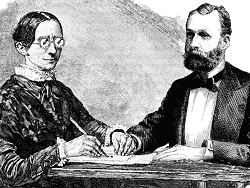 Why can’t we solve the problem of consciousness? That is the question asked by a recent Guardian piece. The account given there is not bad at all; excellent by journalistic standards, although I think it probably overstates the significance of Francis Crick’s intervention. His book was well worth reading, but in spite of the title his hypothesis had ceased to be astonishing quite a while before. Surely also a little odd to have Colin McGinn named only as Ted Honderich’s adversary when his own Mysterian views are so much more widely cited. Still the piece makes a good point; lots of Davids and not a few Samsons have gone up against this particular Goliath, yet the giant is still on his feet.
Why can’t we solve the problem of consciousness? That is the question asked by a recent Guardian piece. The account given there is not bad at all; excellent by journalistic standards, although I think it probably overstates the significance of Francis Crick’s intervention. His book was well worth reading, but in spite of the title his hypothesis had ceased to be astonishing quite a while before. Surely also a little odd to have Colin McGinn named only as Ted Honderich’s adversary when his own Mysterian views are so much more widely cited. Still the piece makes a good point; lots of Davids and not a few Samsons have gone up against this particular Goliath, yet the giant is still on his feet.
Well, if several decades of great minds can’t do the job, why not throw a few dozen more at it? The Edge, in its annual question this year, asks its strike force of intellectuals to tackle the question: What do you think about machines that think? This evoked no fewer than 186 responses. Some of the respondents are old hands at the consciousness game, notably Dan Dennett; we must also tip our hat to our friend Arnold Trehub, who briefly denounces the idea that artefactual machines can think. It’s certainly true, in my own opinion, that we are nowhere near thinkng machines, and in fact it’s not clear that we are getting materially closer: what we have got is splendid machines that clearly don’t think at all but are increasingly good at doing tasks we previously believed needed thought. You could argue that eliminating the need for thought was Babbage’s project right from the beginning, and we know that Turing discarded the question ‘Can machines think?’ as not worthy of an answer.
186 answers is of course, at least 185 more than we really wanted, and those are not good odds of getting even a congenial analysis. In fact, the rapid succession of views, some well-informed, others perhaps shooting from the hip to a degree, is rather exhausting: the effect is like a dreadfully prolonged session of speed dating: like my theory? No? Well don’t worry, there are 180 more on the way immediately. It is sort of fun to surf the wave of punditry, but I’d be surprised to hear that many people were still with the programme when it got to view number 186 (which, despairingly or perhaps refreshingly, is a picture).
Honestly. though, why can’t we solve the problem of consciousness? Could it be that there is something fundamentally wrong? Colin McGinn, of course, argues that we can never understand consciousness because of cognitive closure; there’s no real mystery about it, but our mental toolset just doesn’t allow us to get to the answer. McGinn makes a good case, but I think that human cognition is not formal enough to be affected by a closure of this kind; and if it were, I think we should most likely remain blissfully unaware of it: if we were unable to understand consciousness, we shouldn’t see any problem with it either.
Perhaps, though, the whole idea of consciousness as conceived in contemporary Western thought is just wrong? It does seem to be the case that non-European schools of philosophy construe the world in ways that mean a problem of consciousness never really arises. For that matter, the ancient Greeks and Romans did not really see the problem the way we do: although ancient philosophers discussed the soul and personal identity, they didn’t really worry about consciousness. Commonly people blame Western dualism for drawing too sharp a division between the world of the mind and the world of material objects: and the finger is usually pointed at Descartes in particular. Perhaps if we stopped thinking about a physical world and a non-physical mind the alleged problem would simply evaporate. If we thought of a world constituted by pure experience, not differentiated into two worlds, everything would seem perfectly natural?
Perhaps, but it’s not a trick I can pull off myself. I’m sure it’s true our thinking on this has changed over the years, and that the advent of computers, for example, meant that consciousness, and phenomenal consciousness in particular, became more salient than before. Consciousness provided the extra thing computers hadn’t got, answering our intuitive needs and itself being somewhat reshaped to fill the role. William James, as we know, thought the idea was already on the way out in 1904: “A mere echo, the faint rumour left behind by the disappearing ‘soul’ upon the air of philosophy”; but over a hundred years later it still stands as one of the great enigmas.
Still, maybe if we send in another 200 intellectuals…?
